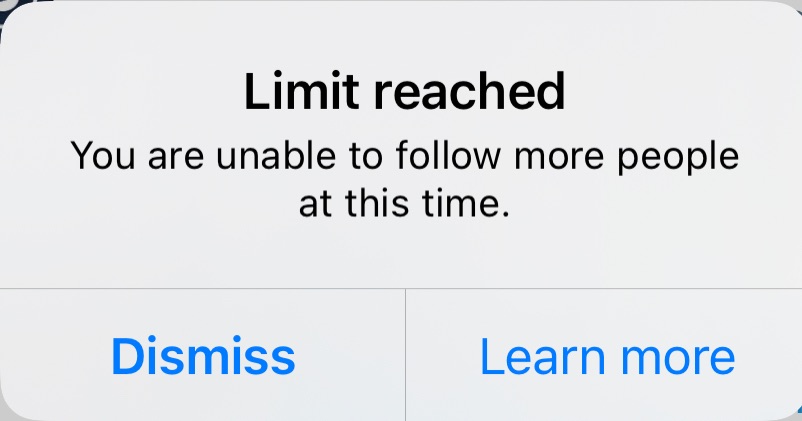[[Against a Social Media Methodology]]

Tom Critchlow is an exception! He uses adjacent terms in describing his work sometimes, but they all lead to concrete examples. Not sure if this will end up being the right place to not this.
https://twitter.com/NeoYokel/status/1351947764859613187
By design or not, The Ratio fundamentally disincentivizes discovery, sincere exposure to new perspectives, and indeed most of what we constitute as “human connection.”
Ultimately, I don't really have a choice but to continue using Twitter as I always have, so I'm going to make the most of it and continue to post whenever and whatever I, myself, would like to see on my timeline - even if my account ends up in such low opinion of The Twitter Algorithm that my Tweets become obfuscated entirely from everywhere on the site save for their full, canonical web addresses, which I will then publish via plain text files hosted on my NeoCities.
Disclose: the excerpt from my astrology about indiscriminately viewing my work.
Above all, those born on this day must learn patience and discrimination. Not all of their work is of the highest caliber, though they expect it to be and can firmly believe it is.
It's okay if you don't understand. You can leave it at that.
We have all inevitably become sus, which is okay, but we should be particularly mindful about it.
The Boaty Issue: https://github.com/extratone/bilge/raw/main/audio/Voice%20Notes/The%20Boaty%20Issue.mp3
Frankly, the cool broadcasts I want to hear are all from Open Web sources: Datafruits, Solarpunk.cool, etc.
The long lost love: Discovery.
The exchange of information or services among individuals, groups, or institutions. Specifically, the cultivation of productive relationships for employment or business.

For a good part of my Junior and Senior years of high school,
After all the outrage, fewer than 2 percent of all users opted out of the algorithmic timeline.
If you follow more people than follow you, what you are in essence saying to that person is "I followed all these people, but only some of them found me interesting enough to follow me back." Not only that, but you are also saying "Yes, I may have recently followed you, but don't take it too personally, I like to follow a lot of people, so really, the fact that I cared enough to follow you doesn't mean I am genuinely interested in what you have to say." Not doing great on A
Twitter is testing a new Tip Jar feature for sending money to your favorite accounts - The Verge
"The Future of Social Media Is All Talk" | WIRED
"What is Stereo app? This new social networking app rivals Clubhouse and is getting thousands of downloads every day" | Glamour UK
End User's Wavve Link: https://wavve.link/user
"The Clubhouse Room Where Israelis and Palestinians Are Actually Talking" | Slate
"Clubhouse Feels like a Party" | The New Yorker
There was something pleasant about meandering from conversation to conversation, as if I had walked into my own home to find a conference in full swing. But I also wondered, Why did I let all of these people into my house? ... It is hard to shake the feeling that everyone on Clubhouse is selling something: a company, a workshop, a show, a book, a brand.
"The Clubhouse Party Is Over" | The Atlantic
"Clubhouse Opens a Window for Free Expression in China" | WNYC
"Tinder CEO Elie Seidman on finding love during the pandemic" | The Verge
NP: Once you find the something more, you probably don’t want to go back to an environment where everyone’s intent is to get to something more. Do you anticipate people are going to spend a long time in Tinder, that they’re going to come back to it again and again throughout their life, or is it once you make the connection, you move on?
We already see episodic behavior, which makes sense. If you find somebody, you get really connected to them, you date them, it’s maybe a long term relationship. We’re really the only app which says, ==“Just because it doesn’t last forever, doesn’t mean it’s not important.”== It’s still important, and we’re very clear about that. We don’t think everything has to last to be important. As a result, we see very clearly episodic use.
People come, they come for a while, they leave, they come back. If that starts at 18, it’s a journey, and they spend their time on that journey. I don’t think this will change that. I very much hope and expect that people will still form important connections, even if they don’t last forever.
https://www.youtube.com/watch?v=7A-Gzn0wu3Q